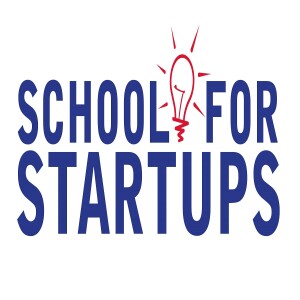
Monday Feb 26, 2024
February 26, 2024 - Treasure Hunt Sales Michael Hinkle and Anthropology & the Environment Alan McGowan
Michael Hinkle – Founder of JBI and Author of Treasure Hunt: A Common-Sense Approach To Building A Successful Sales Career
If you formulate your sales questions and develop a process where
you are making it difficult for potential customers to use the word
no, if they do use it, you can step back for a second, and say ‘What
is the real objection here. Are they saying no to stop me from talking
further or are they saying no, not now?’
Michael Hinkle, author of ‘Treasure Hunt: A Common-Sense Approach To Building A Successful Sales Career,’ is the founder of JBI, a Los Angeles-based sales consulting and coaching business with a specific interest in teaching sales professionals to become sales hunters and create business opportunities from scratch. His three decades in sales have included 20-plus years with a Fortune 500 company, where he rose to become a vice president while continuing to manage a productive sales pipeline and foster client relationships. As a husband and father to three grown children, he loves to recharge through travel and has a long history of volunteering with Boy Scouts of America, Home Aid, and youth sports boards.
Alan H. McGowan – Environmental Change Expert and Author of The Political Activism of Anthropologist Franz Boas, Citizen Scientist
People have to realize that global heating or global boiling is very
serious. The projections made by the climate change community
all turned out to be correct.
Alan H. McGowan, selected as 2019’s Top Science and Technical Expert by the International Association of Top Professionals, also received a Lifetime Achievement Award from Marquis Who’s Who that same year. Now a Lecturer at The New School, he served first as chair of the Science, Technology, and Society Program (now called the Interdisciplinary Science Program) then as chair of the Environmental Studies Program. After graduating Yale University with an engineering degree, and a two-year stint at American Electric Power, a public utility, Mr. McGowan left to pursue graduate work in physics, then taught science and mathematics at private schools for ten years, winning the Teacher Recognition Award from the American Association of Physics Teachers in 1968. Following that, after serving for five years as Scientific Administrator of the Center for the Biology of Natural Systems, an interdisciplinary environmental research, and training program at Washington University in St. Louis, he became president of the Scientists’ Institute for Public Information (SIPI), which under his leadership became a major bridge between the scientific and journalist communities. When changing foundation priorities forced SIPI to close, he founded and ran The Gene Media Forum, part of the Newhouse School of Journalism of Syracuse University, which served as a bridge among geneticists, ethicists, and journalists. Mr. McGowan was a member of both the New York State and the New York City Advisory Committees on Energy Policy and was for twenty years the scientist member of the New York State Energy Research and Development Authority. He has served on many boards and advisory committees, including the Center for the Advancement of Health, the Organization of Tropical Studies, and the Metcalf Institute of the Oceanography School of the University of Rhode Island. He chaired the board of Student Pugwash, USA, an offshoot of the Pugwash Conference on Science and Public Affairs; the organization focuses on ethical issues in science and technology. He currently serves on the board and executive committee of the Bermuda Institute of Ocean Sciences, where he chairs the Legal and Governance Committee. He is also one of six Executive Editors of Environment magazine, now published by Taylor and Francis. He is the author of over one hundred articles focusing on the interconnections among science, society, and technology, both in peer-reviewed journals and the popular press. They have appeared in Jewish Currents, Christian Science Monitor, PTA Magazine, Think magazine, World Book Encyclopedia, and many others. He has presented his research on Franz Boas, ethical issues in science and innovative course in science at scientific and education conferences around the world, and in seminars at Columbia and Princeton Universities as well as at The New School. In addition, he has written over one hundred editorials for Environment magazine over a forty-year period, including one in 1978 warning of the perils of global climate change.
No comments yet. Be the first to say something!